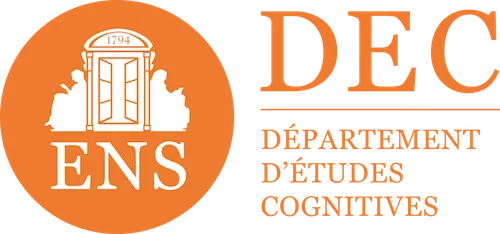.webp)

How to Minimize Cognitive Fatigue in Vocational Training
As a training manager, you are constantly looking to optimize the learning of your employees. A major challenge you face is cognitive fatigability, which can significantly hamper the effectiveness of your training courses. This is especially true for e-learning courses where the learner manages their own learning. In this article, we will explore this phenomenon and present concrete solutions to minimize it.
What is Cognitive Fatigability?
Cognitive fatigability, more often referred to as cognitive fatigue, occurs when a person has to process a large amount of information over an extended period of time, without having had time to rest. Indeed, to assimilate information into memory, the brain must carry out a set of biochemical processes, and these processes require a certain amount of time.
This can happen both in person and in e-learning, but the phenomenon is reinforced in e-learning where the learner must organize his learning independently... yet studies in cognitive sciences show that they do not spontaneously adopt the right strategies.
Once established, cognitive fatigue reduces the “attentional” and memory resources that the learner can allocate to learning. The new information is then less well assimilated and also requires a longer processing time, creating a vicious pedagogical circle where learning becomes more and more difficult.
How to reduce Cognitive Fatigability?
To minimize cognitive fatigue, it is crucial to adopt a proactive approach when designing your training. Here are three research ideas that you can apply right now:
Help the learner to pace their learning:
For the learner to focus on the content to be learned, the most effective way is to take charge of implementing a learning strategy by:
- offering a positioning test so that the learner can focus their efforts on what they need to learn the most
- use systems for progressively locking training modules to space learning over time and allow processes of assimilation of information in memory to take place
These 2 functionalities are available on most LMS and make it possible to better direct the efforts of learners and to ”Let learning breathe”.
Increase the pedagogical effectiveness of your training content
We tell you bluntly, not all educational formats are the same: some better support the acquisition and memorization of new information. This is particularly the case:
- formats that mobilize several sensory modalities to create several paths in the learner's memory to his memory trace
- that ask the learner to actively re-mobilize what he has just seen to improve consolidation From what was seen previously
Combining these modalities harmoniously within a training course allows you to meet the cognitive challenges of each learner and to reduce cognitive fatigability.
Modulating cognitive effort over time
To reduce learners' fatigability, the challenge will therefore be to organize these modalities correctly over time, to preserve everyone's cognitive resources. For this, it will be important to choose the right format, for the right educational challenge!
For example, top-down but focused formats if the learner discovers the training for the first time, first simple re-mobilization exercises if the learner must memorize them, practical cases to be solved if he masters them and he must now connect them to work situations...
And not to rush, and to put the cursor too high, too early, at the risk of overloading your learners!
How does Didask Instructional AI minimize cognitive fatigue?
This work of selecting and organizing teaching methods according to the cognitive challenges of learners requires expertise both pedagogical and on the subjects you are looking to transmit... and it also requires having time in front of you! That is why we have developed educational artificial intelligence specially designed to help you create training courses that minimize cognitive fatigability.
Here's how our AI can help you:
1. Intelligent sorting of information: based on a document or searches that you have asked it to perform, our AI will start from the objective of your training and extract the essential elements for your learners, thus avoiding time-consuming and complex work.
2. Creation of optimal pedagogical progression: it will also identify cognitive issues, and offer everyone the right modality at the right time.
Enough to save time and work on effective training versions from the very first stages of your design process, saving time and efficiency!
This is what we succeeded in doing for the CFPC (center for professional accountant training) in France: 1,800 learners who have completed 8,000 days of training in less than 6 months, with 96% satisfied learners who recommend the courses!
Conclusion:
Managing cognitive fatigue is a crucial issue in order to maximize the effectiveness of your professional training. By adopting the strategies presented in this article, such as instructional guidance for your learners, the use of effective teaching formats, and the modulation of cognitive effort throughout the training journey, you can significantly improve the learning experience of your employees. Didask Instructional AI offers you an innovative solution to meet this challenge, by allowing you to quickly create training courses with a high educational impact!
Make an appointment directly with our eLearning experts for a demo or simply more information.












